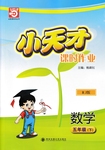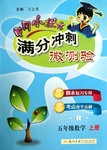题目内容
Life is not easy, so I’d like to say “When anything happens, believe in yourself”
When I was a young boy, I was 36 shy to like talking to anyone. My classmates often 37 me. I was sad but could do nothing. Later, 38 happened, and it changed my life. It was an English contest. My mother encouraged me to 39 it.. What a terrible idea I thought! It meant I had to speak 40 all the teachers and students of my school!
“Come on, boy. Believe in yourself. You are sure to 41 ”Then mother and I talked about many different topics. At last I 42 the topic “Believe in yourself”. I did the best to remember the whole speech and practiced it over 100 43 .With my mother ’s love, I did 44 in the contest. I could hardly believe my 45 when the news came that I had won the first place. I heard the cheers(赞美) 46 the teachers and students. Those classmates 47 once looked down on (瞧不起) me, now all said “Congratulations” 48 me. My mother hugged me tightly for a while and gave me a kiss on my forehead.
49 then, everything has changed for me. When I do anything, I try to tell 50 to be confident and I will find myself. This is true not only for a person but also for a country.
| 小题1: |
|
| 小题2: |
|
| 小题3: |
|
| 小题4: |
|
| 小题5: |
|
| 小题6: |
|
| 小题7: |
|
| 小题8: |
|
| 小题9: |
|
| 小题10: |
|
| 小题11: |
|
| 小题12: |
|
| 小题13: |
|
| 小题14: |
|
| 小题15: |
|
小题1:A
小题2:D
小题3:B
小题4:B
小题5:D
小题6:B
小题7:D
小题8:B
小题9:A
小题10:D
小题11:A
小题12:D
小题13:A
小题14:B
小题15:D
这是一篇励志型文章,讲的是一个自卑的男孩通过一次英语演讲比赛而找回自信的故事。
小题1:固定短语。T oo…to….表示太……而不能…….
小题2:laugh at嘲笑
小题3:这里指something happened(有某事发生了)
小题4:根据句意这里指参加这一比赛,故用join。
小题5:这里指Speak in front of all the teachers and students in my school (在全校师生面前讲话)。
小题6:因为这是妈妈鼓励他的话,确信一定win(赢)。
小题7:应选chose the topic(选定了主题).
小题8:这里指练习了100多遍。故选B.
小题9:这里指在妈妈的关爱下,我演得非常好。
小题10:hardly believe my ears(不敢相信自己听到的)
小题11:cheers from the teachers and students(来自老师和同学的欢呼声).
小题12:考查定语从句的关系代词
小题13:这里对某人说to.
小题14:考查的是since then(自从那时起)的用法,应选since。
小题15:tell myself to be sure(告诉自己要自信)。
小题1:固定短语。T oo…to….表示太……而不能…….
小题2:laugh at嘲笑
小题3:这里指something happened(有某事发生了)
小题4:根据句意这里指参加这一比赛,故用join。
小题5:这里指Speak in front of all the teachers and students in my school (在全校师生面前讲话)。
小题6:因为这是妈妈鼓励他的话,确信一定win(赢)。
小题7:应选chose the topic(选定了主题).
小题8:这里指练习了100多遍。故选B.
小题9:这里指在妈妈的关爱下,我演得非常好。
小题10:hardly believe my ears(不敢相信自己听到的)
小题11:cheers from the teachers and students(来自老师和同学的欢呼声).
小题12:考查定语从句的关系代词
小题13:这里对某人说to.
小题14:考查的是since then(自从那时起)的用法,应选since。
小题15:tell myself to be sure(告诉自己要自信)。

练习册系列答案
 小天才课时作业系列答案
小天才课时作业系列答案 一课四练系列答案
一课四练系列答案 黄冈小状元满分冲刺微测验系列答案
黄冈小状元满分冲刺微测验系列答案 新辅教导学系列答案
新辅教导学系列答案
相关题目
 Young people are often unhappy when they are with their parents. They say that their parents don’t 36 them. They often think their parents are too strict with them, and they are never given a 37 hand.
Young people are often unhappy when they are with their parents. They say that their parents don’t 36 them. They often think their parents are too strict with them, and they are never given a 37 hand.